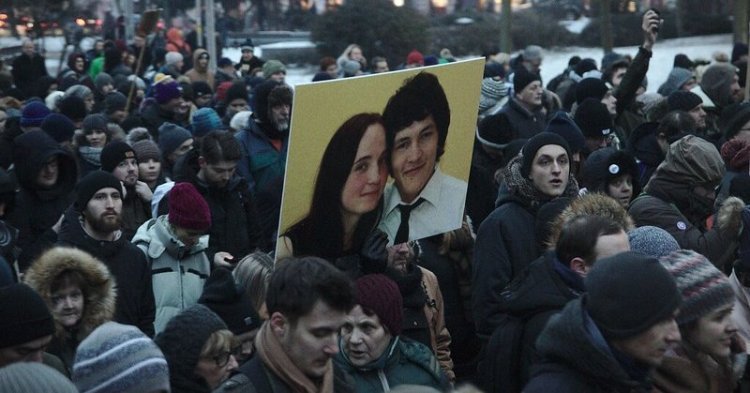Freedom of the press is a key aspect of the agenda of the new European Commission, which has been in office since 2019. This is an appropriate course of action. Fears of an “authoritarian turning point” have proven true in Hungary, where Prime Minister Viktor Orbán has indefinitely granted himself full political power under the pretext of the Coronavirus pandemic. The new measures allow the government to pass laws by decree, thus threatening the last remaining independent sources of information. In Poland, the government is threatening the independence of the judiciary, putting increasing pressure on the freedom of the press. Some Polish courts refer to Article 212 of the Criminal Code, which allows journalists who have been accused of libel to be sentenced to up to a year in prison. This has reinforced the already prevalent self-censorship of Hungarian journalists.
In Southern Europe, the crusade of the authorities against the media is particularly pronounced. In Bulgaria, the so-called “black sheep” of the EU in terms of press freedom, authoritarian methods within the state media led to a significant deterioration in the situation in 2019.
Journalists are also increasingly facing violence from security forces and demonstrators. During the Yellow Vest protests in France, many journalists were injured by the security forces or attacked by angry protestors. This phenomenon, which is increasingly present all over Europe, is not least due to the consequences of hate campaigns and a general loss of trust in the media. In Spain, Catalan secessionist activists have repeatedly attacked journalists during demonstrations, with the disturbing breakthrough of the Spanish right-wing Vox party and its supporters’ attacks on journalists by its creating further unrest. In light of the growing hostility against migrants, right-wing extremists in Italy and Greece attack reporters on the streets on a regular basis.
Digital threats, such as online violence and surveillance, contribute to the pressuring of journalists across the continent, even in the most freedom-loving countries. In Norway, a country especially well-known in terms of democracy and freedom of expression, online harassment is on the rise. This threat also affects Sweden, where a third of journalists say that they have been threatened or faced hatred online. Consequently, this has led some to censor themselves.
The questioning of the confidentiality of sources poses another threat to European journalism. In Germany, the processing of “leaked” data is punishable by law. Furthermore, a new government bill allows for the hacking of computers and smartphones by German intelligence services. As a result of the incorrect interpretation of the new European data protection regulations (GDPR), Romanian local authorities have been able to sue the media after they published critical investigative pieces. These lawsuits can also be filed by companies or individuals.
Across Europe, economic challenges have increased the degree of media concentration, thus creating new risks for journalists. In Latvia, the oldest private television station has dismissed 30 journalists after the station changed ownership. In the Czech Republic, the acquisition of the media group CME, which controls numerous television stations in Eastern Europe, by the country’s richest billionaire has raised concerns.
Throughout Central and Eastern Europe, broadcast journalism is impaired by relentless governmental attacks on the editorial independence of public media. This is the case in Bulgaria, as well as in Poland and Slovakia, where journalists are exposed to increasing political pressure from their senior management officials.
Western Europe has also seen a worsening trend when it comes to the situation of public broadcasting, mainly as a result of new financial management measures, which often disregard freedom of information. While public broadcasting platforms in Luxembourg suffer from governmental interference in its administration, in Belgium journalists are protesting against the lack of funds triggered by significant budget cuts.
Despite the repressive policies of some EU and Balkan countries, Europe remains the safest continent for press freedom. The fight against the lack of prosecution of crimes against journalists has in fact seen improvement recently: in Slovakia, the alleged instigators of the murder of a journalist in 2018 have been brought to justice. Malta has also seen progress in recent months in the investigation of the murder of a popular journalist in 2017.
Looking at independent journalism in Europe, it is clear that it is currently hit by numerous crises at once. Now, with the arrival of a health crisis, the previous trend is amplified further. Authoritarian countries are free to extend measures against the freedom of the press. In order for journalists to be able to continue to perform their essential function, entire societies need to be mobilised. In order for journalism to remain a trustworthy fourth power in all societies, its hands must not be tied.


Follow the comments: |
|
